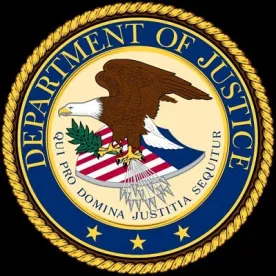The Biden Administration has prioritized environmental justice issues as part of its regulatory agenda
One of the tools it has deployed is “fenceline monitoring” where perimeter monitors are used to assess whether industrial operations impact the community adjacent to their operations. While fenceline monitoring has been prioritized in a consent decree with federal regulators, Chevron Phillips Chemical Company LP recently agreed to install fenceline monitoring at three of its Texas chemical plants. The regulated community should expect to see fenceline monitoring deployed more frequently going forward.
The proposed consent decree settles issues that the US Department of Justice (DOJ) alleged in a complaint filed with the consent decree. The complaint alleges that Chevron violated the Clean Air Act by failing to properly operate and monitor industrial flairs at its chemical plants in Cedar Bayou, Port Arthur, and Sweeney, Texas. In addition to a $3.4 million civil penalty, the terms of the settlement require Chevron to make changes to its operations and install emissions control technology that the US Environmental Protection Agency (EPA) estimates will significantly reduce emissions of greenhouse gasses, volatile organic compounds (VOC), and hazardous air pollutants (HAP). Chevron must also install fenceline monitoring systems that will measure the amount of benzene that escapes into the surrounding communities. Benzene is a HAP that has been linked to an increased risk of cancer.
Under the settlement, Chevron is obligated to regularly post monitoring data from the fenceline monitors on a publicly available website. If the benzene is detected in concentrations above limits specified in the consent decree, Chevron will be required to investigate what is causing increased emissions and bring the emissions down to levels identified as protective of the environment. The near real-time availability and accessibility of the emissions data to the public heightens the level of scrutiny on facility operations, including any response actions that Chevron does or does not decide to take. The consent decree requires that fenceline monitoring will be required at Chevron’s facilities indefinitely.
The settlement is part of the Biden Administration’s focus on environmental justice issues. Earlier this year, EPA Administrator Michael Regan announced plans to aggressively conduct unannounced inspections of facilities suspected of violating environmental permits and putting communities at risk. In a public address announcing the Chevron settlement, Assistant Attorney General Todd Kim detailed how the consent decree will reduce the levels of benzene and other harmful pollutants in the “disproportionately exposed” and “historically overburdened” communities surrounding the Chevron plants. Kim added that the fenceline monitoring will “empower” the communities around the plants by giving them access to information they can use in discussions with Chevron and regulators.
We will continue to monitor EPA enforcement and environmental justice issues.




 />i
/>i

